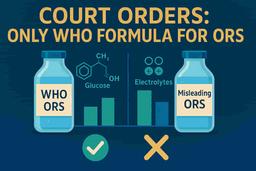The Association of Mutual Funds in India (AMFI) is preparing to respond to SEBI's consultation paper on reducing Total Expense Ratios (TERs). AMFI suggests the proposed steep cuts could disrupt new fund launches and the mutual fund distribution ecosystem, potentially straining distributor commissions. AMFI is likely to argue for a more gradual TER reduction and a higher AUM threshold for its application.
The Association of Mutual Funds in India (AMFI) is gearing up to submit its response to the Securities and Exchange Board of India's (SEBI) consultation paper concerning the reduction of Total Expense Ratios (TERs) for mutual funds. Sources indicate that AMFI believes SEBI's proposed cuts could significantly disrupt the launch of new mutual funds and impact the broader mutual fund distribution network.
Key concerns raised by AMFI include the proposed TER gap of 1.2% between small and large funds, which is deemed "too steep" and could disadvantage larger mutual funds. SEBI has suggested a TER cap of 2.1% for schemes with Assets Under Management (AUM) up to ₹500 crore, dramatically decreasing to 0.9% for schemes with AUM exceeding ₹50,000 crore. AMFI argues that such a sharp reduction in margins could hinder new fund offers (NFOs) and strain the commissions earned by distributors, potentially making it difficult for Asset Management Companies (AMCs) to operate profitably.
Furthermore, AMFI is expected to propose that TER regulations should only apply to funds with an AUM of ₹2,000 crore or more, a considerable increase from SEBI's proposed ₹500 crore threshold. AMFI also feels the proposed gradation of TERs, which decreases as fund size increases, should be more gradual.
Additionally, AMFI plans to advocate for higher brokerage commissions for mutual funds than the 2 basis points proposed by SEBI. SEBI's consultation paper includes other significant proposals such as lower base TER slabs for open-ended schemes, excluding statutory levies like GST and STT from TER caps, and tightening limits on pass-through brokerage to 2 bps for cash market trades and 1 bp for derivatives, down from the current 12 bps and 5 bps respectively.
The public comment period for SEBI's discussion paper concludes today, November 17, 2025.
Impact:
This news directly impacts the mutual fund industry in India. Reduced TERs could mean lower costs for investors in the long run, but AMFI's concerns highlight potential challenges for fund houses and distributors, possibly affecting the availability and marketing of new investment products. It could lead to a more concentrated industry or pressure on smaller fund houses.
Rating: 7/10
Glossary:
Total Expense Ratio (TER): The annual fee charged by a mutual fund to cover its operating expenses, expressed as a percentage of the fund's assets under management.
Assets Under Management (AUM): The total market value of all the financial assets that a financial institution manages on behalf of its clients.
New Fund Offer (NFO): An offer made by an issuer to sell new securities to the public.
Consultation Paper: A document issued by a regulatory body seeking feedback and opinions from the public and industry stakeholders on proposed policy changes.
Brokerage: A commission paid to a broker for executing a transaction (buying or selling securities).
Basis Points (bps): A unit of measure used in finance to describe the percentage change in a financial instrument. One basis point is equal to 0.01% (1/100th of a percent).
Statutory Levies: Taxes or duties imposed by law, such as Goods and Services Tax (GST), Securities Transaction Tax (STT), and stamp duty.
Open-ended Schemes: Mutual fund schemes that are available for subscription and redemption on a continuous basis.




